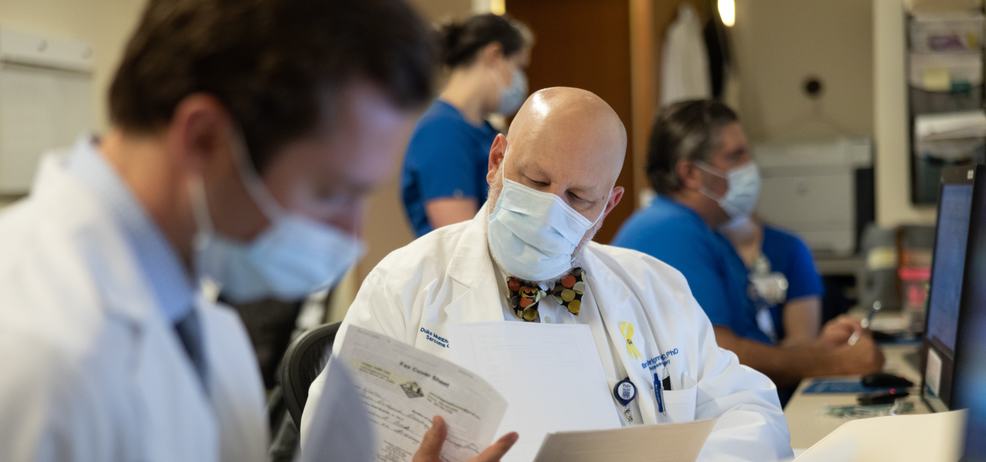The Duke Cancer Institute is committed to improving the care of sarcoma patients through research and clinical trials. Brian Brigman, MD, PHD, director of the Duke Sarcoma Center; William Eward, MD, DVM, orthopaedic surgical oncologist with the Duke Sarcoma Center; and Julia Visgauss, MD, orthopaedic surgical oncologist with the Duke Sarcoma Center, are among the DCI members working to make advancements in treatment and improve outcomes for sarcoma patients. As July marks Sarcoma and Bone Cancer Awareness Month, Drs. Brigman and Visgauss share their insights on this work.
What inspired you to specialize in sarcoma care and research, and what continues to motivate you in this field?
Brian Brigman: As an orthopaedic surgery resident, I witnessed excellent patient care in all areas of the field. Helping someone with their knee pain from arthritis is undoubtedly rewarding, but it is a whole different animal to save someone’s life from cancer. Having the opportunity to build a lifelong relationship with our patients is truly humbling.
Julia Visgauss: I have had incredible teachers and mentors who, throughout my educational journey, instilled in me a fascination and love of the pathophysiology of bone. However, it is genuinely my patients who continue to inspire and drive me every day to innovate in this field, both clinically and scientifically.
William Eward: I initially developed an interest in sarcoma because it is a type of cancer that affects so many dogs and cats. That was my primary interest as a veterinarian, and it's what motivated me to study human medicine.
Can you share a recent advancement or success story from the Duke Sarcoma Center that you’re particularly proud of?
BB: One of the most important recent advances in sarcoma care was the result of a multi-institutional, multinational, randomized controlled study of immunotherapy, along with surgery and radiation in some soft tissue sarcomas, which was designed and conducted by members of the Duke Sarcoma Center. This study, involving radiation oncologists, medical oncologists, and surgeons from the Duke Sarcoma Center, showed a 15 percent improvement in survival in select patients treated with Pembrolizumab.
How do members of the Duke Sarcoma Center work together to enhance patient care and outcomes?
WE: We have a very close connection between radiation oncology, medical oncology, radiology, interventional radiology, pathology, and other surgical subspecialties. Patients can be confident that when they are treated here, their situation has been discussed by a group of doctors and staff to thoughtfully consider all of the bets options.
What do you think is most important for patients and the public to understand about sarcoma and its treatment?
JV: Sarcomas are a cancer that not only jeopardizes life but also affects function. Treatment usually involves multimodal adjuvant therapies along with surgery, making the treatment course feel more like a roller coaster than a straight path. Studies indicate that it takes about two years for people treated for sarcoma to feel fully recovered. Additionally, because this type of cancer is rare, being treated at a specialized sarcoma center like Duke’s is crucial and has been shown to improve patient outcomes and survival.



